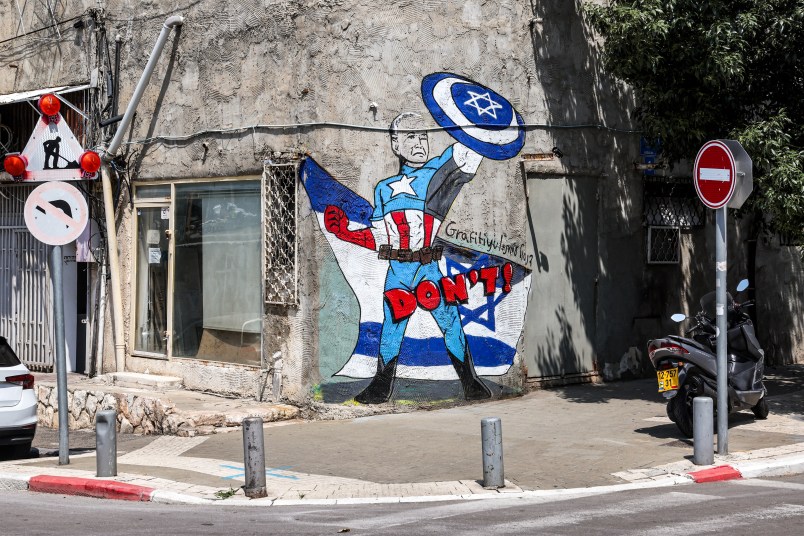As we’ve seen from a number of polls, clear majorities of Americans appear to believe that the Cordoba Initiative organizers have the right to build their community center in Lower Manhattan. But substantial majorities don’t support their plan to do so. With this in mind I’d been wondering (and even half considered commissioning a poll, though our budgets really wouldn’t bear it) what answers to some other questions would be. Like, how many people think Muslims should be able to become American citizens? Or serve in Armed Forces? How many think they should be able to run for office?
These are uncomfortable questions both for what the questions and the answers might suggest. And how Time has asked at least some of them.
A couple revealing data points. Number of Americans who believe Muslims should be barred from sitting on the Supreme Court? 28%. Number of Americans who believe Muslims should be barred from serving as president? 32%.
These are sobering numbers, though the picture is incomplete without noting that there is an ambient level of mistrust and animosity toward other religions as well. Here’s another question that got asked …
What if the following religious groups proposed building a community center and place of worship two blocks from your home. Would you favor or oppose it?
Jewish:
Favor: 73%
Oppose: 18%
No answer/Don’t know: 9%Catholic:
Favor: 78%
Oppose: 14%
No answer/Don’t know: 9%Muslim:
Favor: 55%
Oppose: 34%
No answer/Don’t know: 10%Mormon:
Favor: 65%
Oppose: 24%
No answer/Don’t know: 11%
The number is dramatically higher for Muslims than Catholics and Jews, but it’s not non-existent for those other groups. And the difference for Muslims and Mormons is significant but not that great.
Still, there’s no question that American Muslims are occupying a dramatically different place in terms of acceptance within American society. And I would say that there’s something else this poll isn’t able to get at. That is, not only beliefs but the public acceptability of certain beliefs.
For instance, for many good reasons, anti-Semites in American society generally know to keep their heads down. Not always by any means. But such views carry a heavy social stigma in most of American society and they’re likely to get you canned from your job or penalized in other ways if you express them openly. Racism against blacks is the same. While it’s definitely there, the open expression, as opposed to the veiled expression, of hostility to African-Americans carries consequences. I think one of the things we’re seeing today is not only that there’s more animosity to Muslims but that — perhaps just as importantly — expressions of such hostility carries very little social stigma.
And why is this? To the Mosque-haters, the answer is elementary: Muslims are scary, violent people so Americans don’t like them. Let’s say I’d come at the question in a different way.
I think we have basically three factors. One is the fact that while there’ve been Muslims in the US for well over a century, Islam as a significant factor on the American social and cultural landscape is quite new. Even though the US has been embroiled in various ways in the Middle East for decades, my sense is that until 10 or 15 years ago, in the US public consciousness, that was mainly about ‘Arabs’ as opposed to Islam per se. Not that most people didn’t know that most Arabs are Muslim and that most Muslims aren’t Arabs. But still, I think in terms of public consciousness the focus was more on the ethnic group than another religion. So Islam is new and still quite unfamiliar. The Time poll says 62% of Americans do not personally know a Muslim, though honestly I would have expected that number to be higher.
Next, into this context the first major exposure to Islam that many Americans had was a horrific and catastrophic terrorist attack perpetrated by followers of an extreme and puritanical variant of Islam that is not only palpably violent and hostile to Americans but also hostile key elements of what Americans value — a high regard for personal freedom, equality and freedom for women, cultural and religious pluralism, the list could really go on and on.
Finally, to add to this, since 9/11 there’s been what I would call an underbrush of anti-Islamic agitation, with various activist and pressure groups in various ways pushing the idea that al Qaeda and the most extreme forms of Islam really is Islam. And that more moderate and modernist versions of Islam are actually covers for the true Islam which, again, is basically the same as al Qaeda or the most radical elements we see across the world.
Seen in this light, particularly in light of the last of these three, it’s really not that surprising that there’s a lot of hostility and mistrust of Muslims. And in that context I think these poll numbers are valuable to surface. Because they make very clear that this is not just about the placement of this single Mosque.







